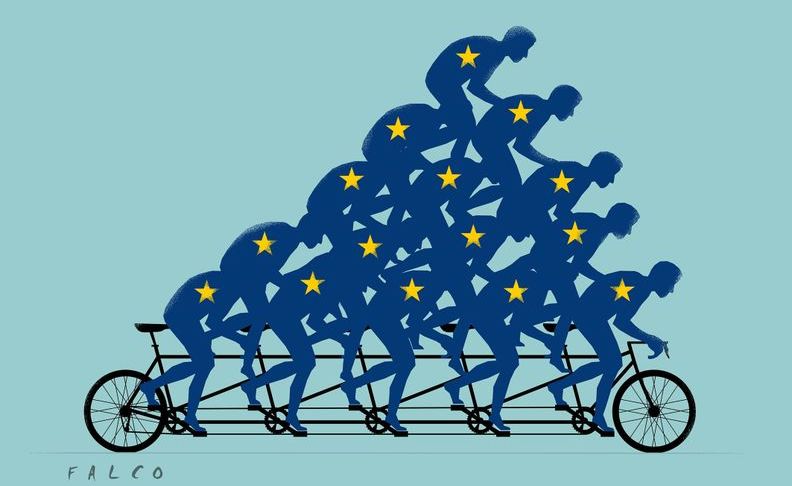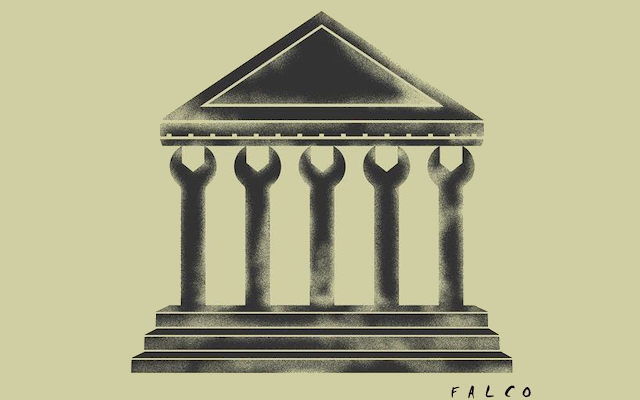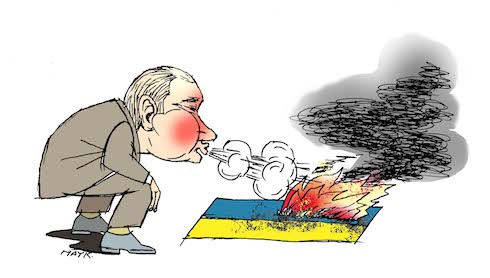Berthold Kohler writes in the Frankfurther Allgemeine Zeitung that Russian President Vladimir Putin has “no interest in a prospering Ukraine”, arguing Putin aims to create a “failed state” that would act as buffer zone between Russia and Western democracies —
Putin’s aim is not the stabilisation of the neighbouring country, but rather its destabilisation. He wants to avoid a feared westward turn. For a country with such “problems”, membership in the EU or NATO would be out of the question. [...] It is obvious that the geostrategically thinking Kremlin is also eyeing up building a land-connection to Crimea, [which currently] depends on Ukrainian supplies. Putin wants Kiev to depend on Russian supplies, not for Moscow to depend on Ukrainian ones.
British weekly The Economist notes that despite stepping up incursions into the east of Ukraine, Putin’s focus has shifted to the country’s economy —
In Minsk [at a summit where he met Ukrainian president Petro Poroshenko] Mr Putin sounded none of the nationalist notes that accompanied his annexation of Crimea. Instead, he harped on economic matters, perhaps foreshadowing a gas war. With the temperature dropping, Mr Putin believes that time is on his side. Ukraine needs 5 billion cubic metres of gas to get through the winter.
Newsletter în limba română
The Economist notes the loss of Crimea and the crisis in eastern Ukraine have left the economy “in tatters”, with the International Monetary Fund estimating gross domestic product will contract by 6.5 per cent this year and that the hryvnia has already fallen over 60 per cent against the dollar. The weekly also underlines the importance of the troubled Donbas region, which “accounts for 16 per cent of GDP and 27 per cent of industrial production”.









